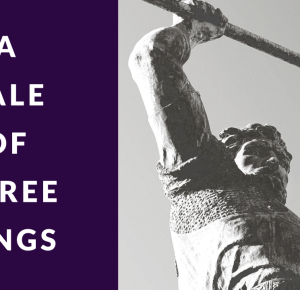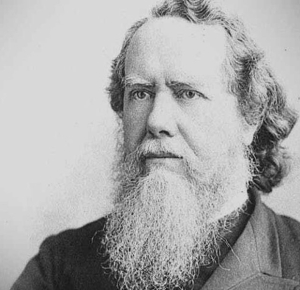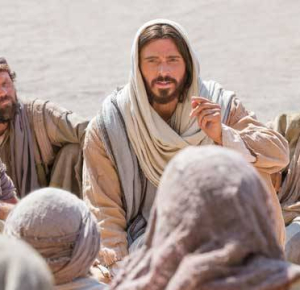An Argument for Deputation

 Agrowing trend over the last couple of years is to say that deputation is broken. I have seen this comment made dozens of times on social media and have heard it from many pastors. When my wife and I were on deputation, many well-meaning church members or pastors would make comments like, “Wouldn’t it be great if you guys didn’t have to travel and visit churches and could leave right now for the field? I know this is a tough time for you all because you are raising support, but it will be over one day. It is such a shame that you have to waste all this time on deputation.” There were many pastors we met who understood the benefits of deputation, but many times I am seeing and hearing the opposite. Many people seem to think that is a foregone conclusion and a widespread belief that deputation is bad and broken. However, I would like to say that I strongly disagree. I believe that deputation done properly is a benefit and blessing for any missionary. I want to share a few reasons why I think that deputation is not broken and is an excellent thing.
Agrowing trend over the last couple of years is to say that deputation is broken. I have seen this comment made dozens of times on social media and have heard it from many pastors. When my wife and I were on deputation, many well-meaning church members or pastors would make comments like, “Wouldn’t it be great if you guys didn’t have to travel and visit churches and could leave right now for the field? I know this is a tough time for you all because you are raising support, but it will be over one day. It is such a shame that you have to waste all this time on deputation.” There were many pastors we met who understood the benefits of deputation, but many times I am seeing and hearing the opposite. Many people seem to think that is a foregone conclusion and a widespread belief that deputation is bad and broken. However, I would like to say that I strongly disagree. I believe that deputation done properly is a benefit and blessing for any missionary. I want to share a few reasons why I think that deputation is not broken and is an excellent thing.
One, you are raising support for a lifetime of service on the mission field. What other job or ministry is there where you can take two years and raise support for the rest of your life? It is unheard of, and I believe one of the greatest things about the way Independent Baptist Churches support missionaries. Of course, many of you are thinking about the fact that missionaries will lose supporters over the years and will have to go back to visit more churches. It is a very valid point, but the truth is that if you raised your full amount of needed support on deputation, your losses in supporters over the years will not affect you very much. Many of the missionaries that continuously have to come back to the states to raise support did not raise their full amount of needed support in the first place, and because of that, say that deputation is broken. Also, I believe that if you continue to communicate with your churches in the states, your losses in supporters will not be as high. I have been in a church where the pastor told me that they had just dropped someone because they hadn’t received a prayer letter in 6 months. If you never communicate with your supporters while on the field, then it should not be a surprise when you lose some of their support. If you raise your full amount of needed support on deputation and stay in contact with your supporters while on the field, then during your normally scheduled furlough every four years, you should easily be able to pick up supporters you lost. Deputation gives you the funding and contacts to have support for you and your ministry as long as you are on the mission field.
Two, there is a lot to be learned from deputation. Many people view deputation as wasted time in the life of a missionary, but I do not think that is the case! I believe there is much to be learned from deputation, especially for a younger guy like me. You can preach in many different churches and see many kinds of ministries. You can meet pastors from all over America and hear what they have to say. There are many things to learn about how pastors run their churches and lead their ministries. You will gain valuable experience in preaching and learning how to communicate with people from different regions and areas. You will be able to build relationships with pastors who can help you in your ministry for years to come. Raising support and getting to the field is the primary goal of deputation, but that does not mean that deputation can’t help you grow in other areas of your life. I think deputation can be a very valuable time if done correctly.
Three, it stops people from going to the mission field that should not be there. It is part of the weeding out process. I believe that if you are not able to finish deputation, then you probably should not be on the mission field. Deputation is like a playground compared to the mission field, so if you are not able to cut it on the playground, then you should not be on the battlefield.
Four, it works. This might be the part where many of you disagree. You might think, “Sure, I can see the benefits of raising support for a lifetime of service on the mission field and how you can learn and gain valuable experience on deputation, but I just don’t believe that deputation is the best way to raise support.” I want to show you some numbers that prove deputation does work. A friend of mine named Mark Tolson has already done the work for me in a blog post that wrote several years ago. He has written a very clear explanation of the numbers of deputation, and I would like to put those below to show you that deputation is not broken. I have found in my experience that the numbers he has here are accurate and if anything you should be able to finish deputation more quickly than the formula that he has here.
Deputation Formula
Formula: Total Support Wanting to be Raised / $280 = Number of Months with 10 Scheduled Meetings (round up).
$5,000 / $280 = 18 months with 10 scheduled meetings
$6,000 / $280 = 22 months with 10 scheduled meetings
$7,000 / $280 = 25 months with 10 scheduled meetings
$8,000 / $280 = 29 months with 10 scheduled meetings
$9,000 / $280 = 33 months with 10 scheduled meetings
$10,000 / $280 = 36 months with 10 scheduled meetings
So according to the formula above we are assuming that out of every 10 scheduled meetings 4 will take him on at an average of $70 per month. With this assumption, we can not only calculate how many months it will take if he has an average of 10 scheduled meetings a month but also how many meetings he needs to be in.
$5,000 / $280 = 18 months with 10 scheduled meetings OR 180 scheduled meetings
$6,000 / $280 = 22 months with 10 scheduled meetings OR 220 scheduled meetings
$7,000 / $280 = 25 months with 10 scheduled meetings OR 250 scheduled meetings
$8,000 / $280 = 29 months with 10 scheduled meetings OR 290 scheduled meetings
$9,000 / $280 = 33 months with 10 scheduled meetings OR 330 scheduled meetings
$10,000 / $280 = 36 months with 10 scheduled meetings OR 360 scheduled meetings
Now I said that my formula was based on hard work and all I have showed is numbers so far. You are right, and this is where we translate the numbers into hard work. The missionary has the work to schedule 10 meetings a month. How? Phone calls. A missionary will need to put 8-12 hours of calling in everyday to be able to book the above amount of meetings. He doesn’t stop calling until he is booked. This is hard work. This is boring. But this is what it takes.
Our research has shown that it is generally true, the more churches you are in during a shorter amount of time, the quicker you finished deputation. The fewer number of churches you are in over a longer amount of time, the slower you finish deputation.
Example:
Missionary #1 raised $5,000 by scheduling 180 churches in 18 months.
Missionary #2 raised $5,000 by scheduling 180 churches in 29 months.
Missionary #2 raised the same amount of support and was in the same amount of meetings, but it took him 11 months longer because he didn’t average 10 meetings a month. Why didn’t he book more meetings per month? Maybe he called 12 hours everyday and just couldn’t find churches to book him or maybe the system is broken. More likely, it would be my guess that he wasn’t working hard. Missionary #1 raised the money quicker because he worked harder.
If you would like to read his whole article and other articles that he has written on deputation, you can click here.
The only thing that I would like to add to this is the number of phone calls needed to book these meetings. I think this is really where the rubber meets the road. As a general rule, 100 calls will allow you to talk to 10 pastors. Out of those ten pastors you speak with, you will probably be able to schedule one meeting. I believe that these numbers will be a little bit lower when you first start making cold calls and much higher after several weeks of calling when you are making more callbacks and less cold calls. In the worst of cases, you should average one meeting for every 100 calls. You might think that it is a terrible percentage, but it is excellent. If you are calling without distraction and not taking breaks, then you should average 30 calls an hour, and this means that about every three hours, you should get a meeting.
So if you call for 10 hours a day, then you will get three meetings a day. Depending on your level of needed support, you might need 150 meetings or 300 meetings, but if you put the work hours in then, you will get those meetings and support. If you need 150 meetings, then you will need to put in 500 hours of calling or 62.5 eight hour days. If you need 300 meetings, then you will need to put in 1000 hours of calling or 125 eight hour workdays. This is a very low amount of work to get meetings to be able to raise your support.
I know many other factors go into deputation, and we don’t have time to talk about them right now, but as a general rule, if you put in the work to make the calls, then you should be able to raise your support. I think from these numbers we can see that deputation is not broken at all. From my experience and several missionaries that I have talked to, I believe many of these numbers are low, and you can make up to 100 calls an hour and have 12-13 meetings a month. I think that you can raise your support in a much quicker amount of time than the formula says, and I saw that in my deputation experience.
I firmly believe that deputation is not broken. I think that if you are putting in the work, have the right attitude, and are trusting in God; then you can raise your support and get to the field. I do not believe that deputation is wasted time, but it is a time that God can use to grow you and give you experience that you would never have had before. So if you are a missionary raising support, enjoy the process and learn as much as you can. If you want to be a missionary but are scared of the deputation process, don’t be. I believe that it is an excellent faith-building process that allows you to fund your ministry on the field for a lifetime of service.















0 Comments